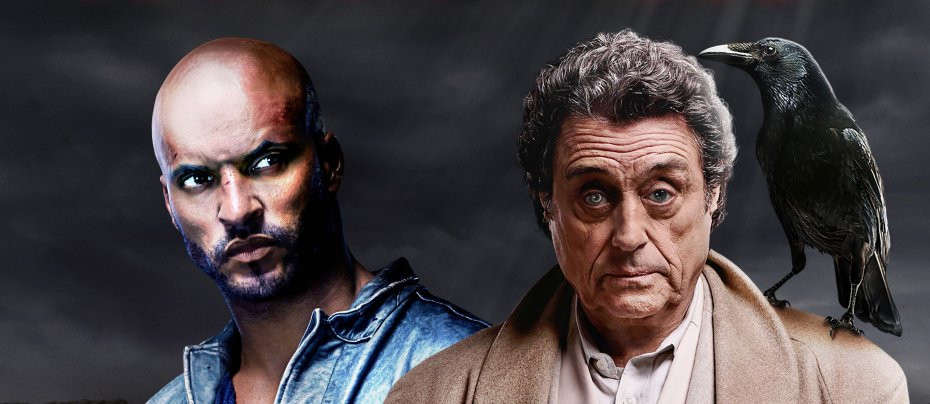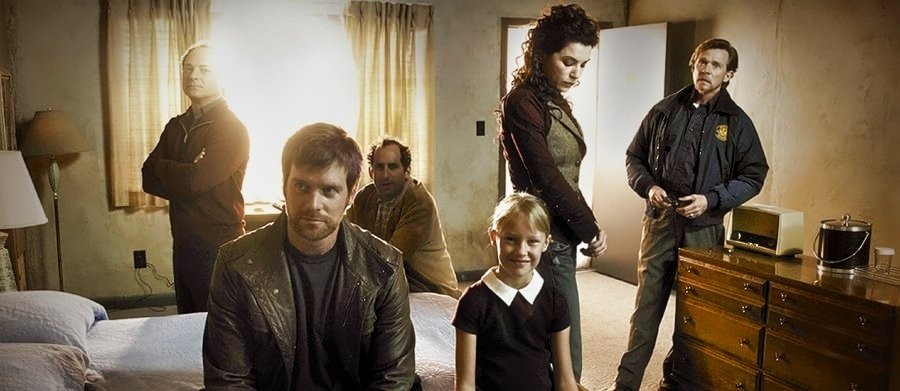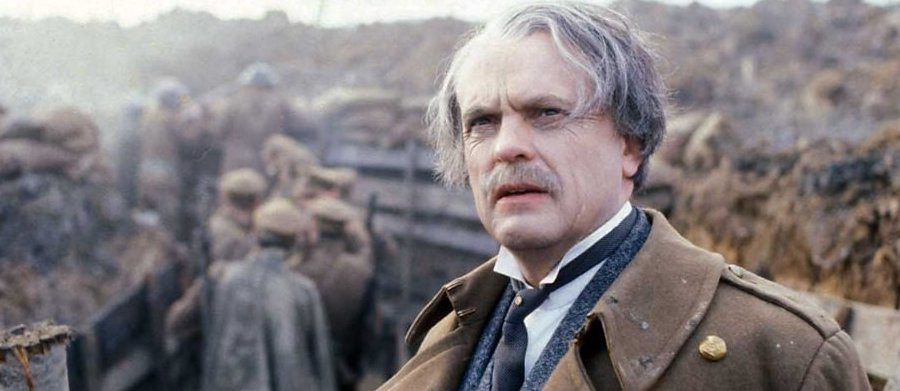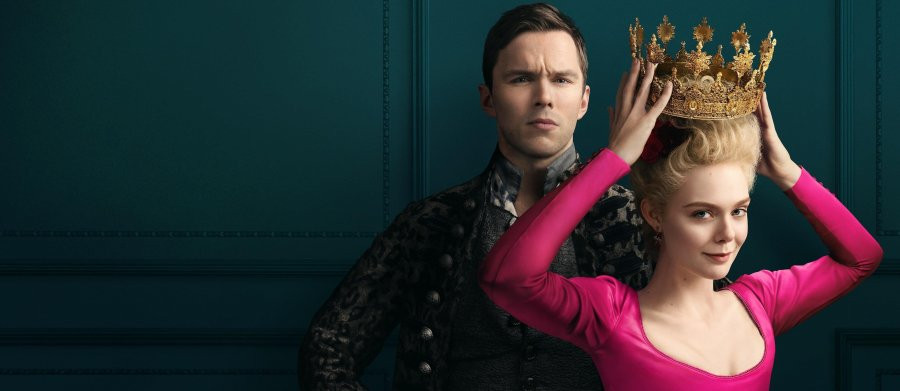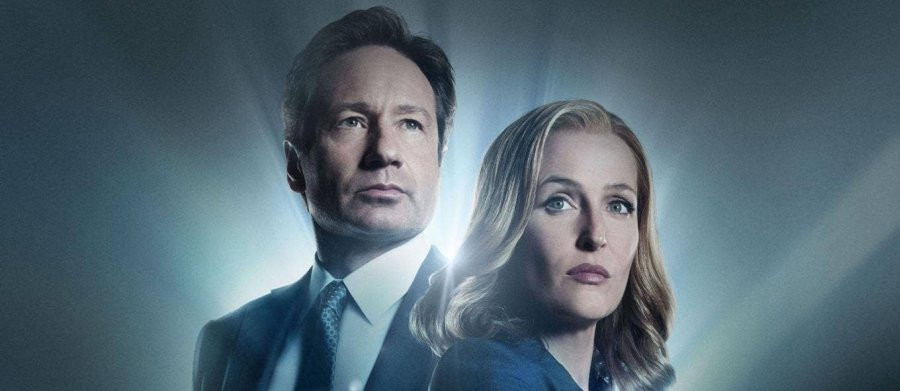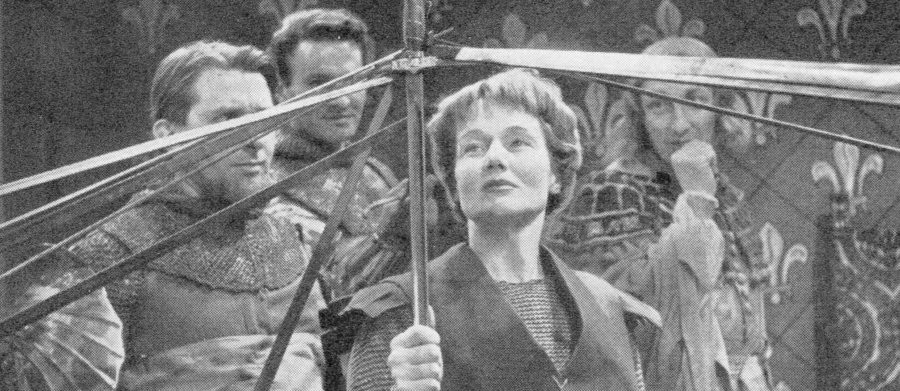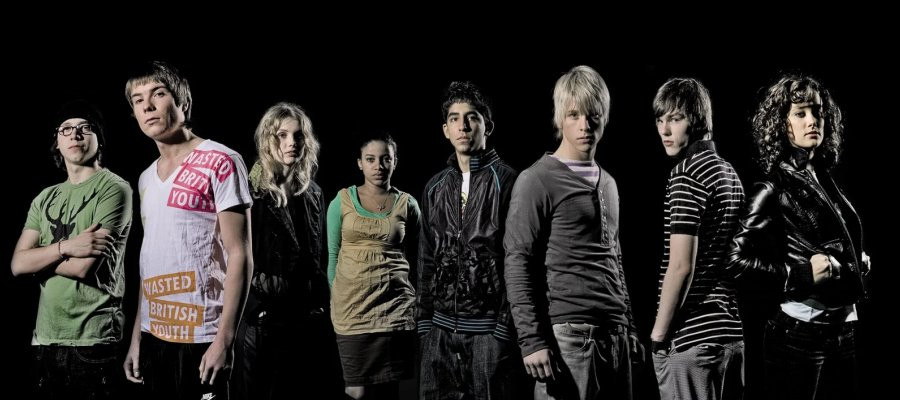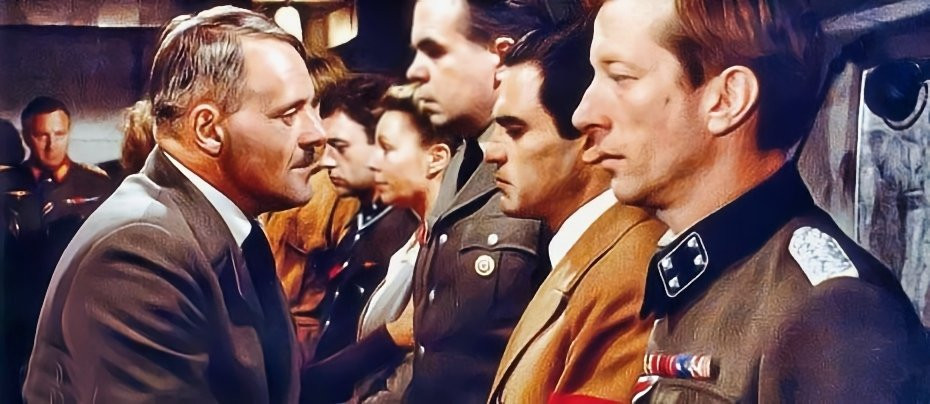
The Great - Season 2
Review by John Winterson Richards
The season as a whole can be summed up very easily as a classic example of "the difficult second." The problem with any novel or album or work of art that is praised as original and unique is that those selling points are lost immediately when one tries to do the same thing again. The first season of The Great was something different, a breath of fresh air. It seems to have been written with the sincere intention that it would remain a one-off "miniseries." When its success made that unlikely - it is basically the only thing Hulu and Starz have going for them at the time of writing - the commercial reality of the situation dictated more of what had worked before rather than a radically new direction.
So Season Two is entertaining, for the same reasons and in the same way as Season One, but all sense of novelty is gone.

The first season ended on a powerful, dramatic note. The second picks up the story four months later with little changed, implying that the heartbreaking choice Catherine (Elle Fanning) had to make has turned out to be rather pointless.
The bright, well-meaning German born Empress of Russia is still engaged in a civil war with her boorish but amusing husband, the Emperor Peter III (Nicholas Hoult). This seems to consist entirely of two Court factions occupying different wings of the Imperial Palace. Catherine's side seems to be running out of the momentum that is crucial to a 'coup,' while Peter and his friends are simply partying.
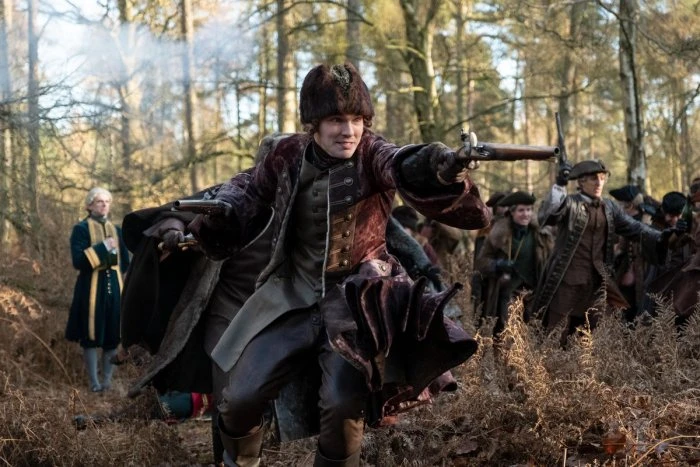
Since we know that Catherine is going to become Catherine the Great - the title is a bit of a clue - it is no spoiler to reveal that she eventually gets the better of him. However, a brilliant combination of very dark humour, bordering on farce, with real tragedy makes what should be the joyous moment of her Proclamation as Reigning Sovereign a bittersweet experience.
The first episode therefore ends with a tragic image - the significance of which is barely mentioned again. It is as if a major story arc of the first season never happened.
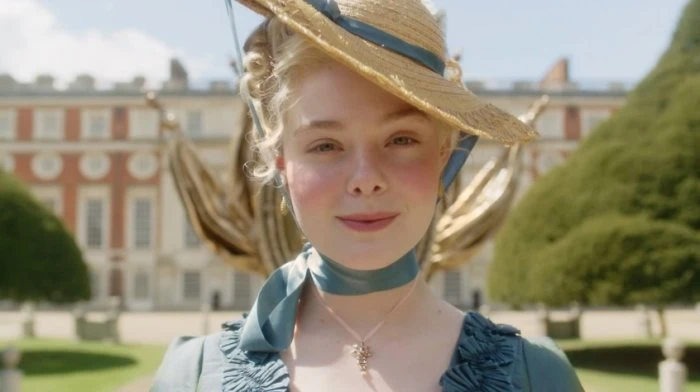
That is just one of the reasons the next few episodes are slightly disappointing. Another is that Catherine becomes less likeable. Adversity and success are the two great tests in life. In adversity Catherine grew stronger, but success brings out the worst in her. She develops something of a vicious streak. She talks hatefully of killing Peter and, less justifiably, the Patriarch "Archie" (Adam Godley). She threatens and taunts those in her power to their faces. She becomes mean and capricious.
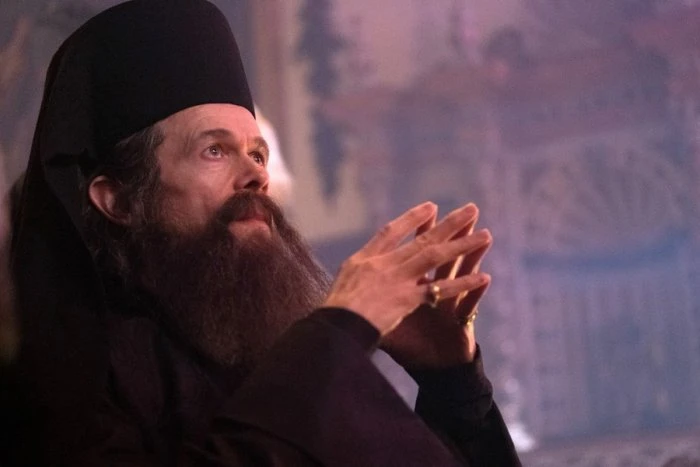
In Season One, Hoult sometimes seemed to be channelling Hugh Laurie as Prince George in Blackadder the Third. Now Fanning sometimes seems to be channelling Miranda Richardson as Queen Elizabeth I in Blackadder II.
Catherine was always something of a know it all. Authority only increases her intellectual arrogance. She seems to have learned nothing from her mistakes. She talks a lot about opening minds, but, as Peter observes in a rare moment of perspicacity, what she really wants is for everyone to agree with her.
In this she seems to be a recognisable 21st Century type, the undergraduate who is certain that her opinions are infallible only because she happens to have read a couple more books than those around her. Since we are invited to identify with Catherine, we begin to worry whether this most delightfully subversive of shows has sold out and is trying to read us a heavy-handed lecture on current politics.

Happily, it pulls out of this nosedive just in time. Once again, Catherine's book learnt ideas run into a solid wall of reality in the form of Russia. It soon becomes clear that she still does not understand her adopted country or its people, and she has not thought all her clever schemes through. When this is exposed rather brutally in a crisis, her instinct is to double down on reform, thus losing the support of even her closest allies. When this results in predictable disaster, she remains incapable of admitting she was wrong.
We are therefore led to the surprising conclusion that foolish Peter may have the better grasp of how to rule Russia. There is a reason why things are as they are. Peter understands that brutality may sometimes be necessary in a brutal world, but also that there is an informal give and take in old established traditions. If he was ineffective, it was partly because he knows that there are limits to what even an Emperor can do without losing authority. By contrast, the nominally liberal Catherine is, ironically, an instinctive autocrat.

Peter evolves as a character in Season Two in a way Catherine does not. He reflects on his defeat and the mistakes that led to it. He is honest with himself. He seeks to change, at first so that he may regain power, but then he begins to question whether he really wants it. He matures, even if he is never going to be the sharpest tool in the box. He becomes a lot more sympathetic, which may turn out to be a narrative problem - because he really has to die.
History is clear that Catherine's 'coup' succeeded because it was swift and decisive, with Peter, like many deposed monarchs, dying very conveniently in captivity soon after, officially of "natural causes." Of course, The Great has never cared much about actual history. It has always been commendably honest about that, and it is being completely serious when it now subtitles itself "An Almost Entirely Untrue Story." One can understand why the producers wanted to squeeze at least another season out of the chemistry between Fanning and Hoult.
They are great fun together. The supporting cast are also entertaining, but there is a feeling that the writers are having difficulty finding things for them to do. One important character disappears for several episodes and two others start a very unconvincing affair. "Archie" has a crisis of faith simply because that is what religious characters always do in modern drama.
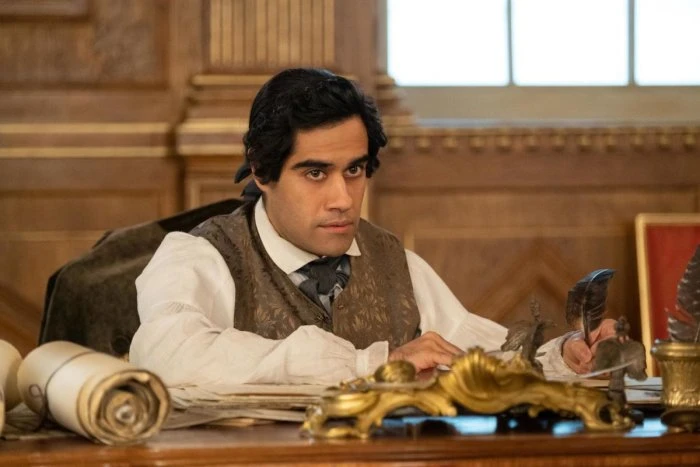
There are some clever twists. Like Catherine, her friends are tested by success. Marial (Phoebe Fox) turns out to be rather nasty. What could be excused as defensiveness when she was a servant becomes bullying when she is restored to the nobility. She is capable of kindness but more on a whim than out of compassion or humility born of her recent experience. The Reformist Count Orlo (Sacha Dhawan) falls short of his high principles. General Velementov (Douglas Hodge) begins to doubt Catherine and discovers that his assumptions about what he might achieve without Peter interfering in his military plans are not well founded. Aunt Elizabeth (Belinda Bromilow) is no longer hiding that she is not quite as dotty as she appears but that does not mean that she is wholly reliable.

Gillian Anderson and Jason Isaacs are well cast in guest roles as Catherine's mother and Peter's father respectively - since the latter, in the show but not in history, is Peter the Great, he appears as a ghost. Both parents are very disappointed with their children. Freddie Fox and Grace Molony make a welcome reappearance as the wholly fictional King Hugo and Queen Agnes of Sweden. As Agnes predicted, their democratic reforms have led to them being run out of Stockholm by their ungrateful subjects. To be honest they add little to the plot but it is fun having them around.
The production values are, once again, outstanding in every department, even if some of the locations, magnificent as they are, look slightly tired from overexposure. The Russian Empire was huge and diverse: there was more to it than a staircase near Naples, a long gallery in an English stately home, a splendid summer house, and a few forest shots.
That is a good metaphor for the whole season. We are seeing the same things we enjoyed before, and they are still enjoyable, but also still the same. We get nearly all the main story points from Season One. "Peter Is an Idiot." Tick. "Peter Tries to Change." Tick. "Catherine Begins to Imagine Peter Might Change." Tick. "Catherine Realises Peter Will Never Really Change." Tick. "Catherine's Theoretical Ideas Prove Impractical." Tick. "Catherine Gets Brutal." Tick. Only the running order is slightly different.
The second season ends, like the first, with some dramatic events, even if they do not have quite as much emotional impact. Perhaps this is a sign that the story is ready to move on at last. It is time. Those who, like this reviewer, enjoyed the first season will probably enjoy this one too. There is a lot of genuine wit on display, including a couple of clever in-jokes about Pugachev and Molotov for those who know their history, even if it should be noted that the vulgarity of much of the humour is not for everyone. However, now that the decision has been made to develop the initial "miniseries" idea into an ongoing comedy drama, the plot and characters need to progress. It is not going to be enough to carry on making slight variations on the original "miniseries" for season after season.
Published on January 5th, 2022. Written by John Winterson Richards for Television Heaven.


